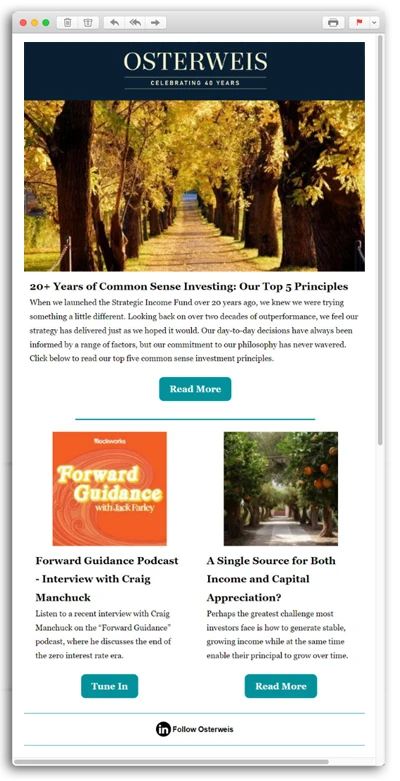In a Speculative Market, Focus on Fundamentals
Despite record unemployment and a sluggish economy, equity markets have been performing quite well since last March. Initially, market leadership was concentrated around companies that developed technology to support telecommuting and e-commerce, but in the past few months, as investors have become more optimistic about the virus, the rally has broadened substantially – particularly for small and micro-cap stocks. Between October 1, 2020 and February 28, 2021, the Russell 2000 small cap index increased 47% and the Dow Jones Micro-Cap index increased 65%. Over that same period the S&P 500 increased a more modest 14%.
While we do not think the entire small cap market is in a bubble, we do believe speculative activity has increased materially recently, and we are not convinced all of the businesses currently experiencing rapid price appreciation are strong enough to justify their gains. For example, as reported by the Wall Street Journal, in the Russell 2000 index, nearly 40% of companies that have no earnings have outperformed profitable firms this year. In addition, performance has become less predictable recently, as investors have been chasing momentum rather than buying high quality businesses.
In a Spectulative Market, Fundamentals Are Essential
Given the uncertainty of the current environment, we believe the best strategy is to stay laser-focused on fundamentals and invest in only the strongest firms. This, of course, is our approach regardless of market conditions, but right now we feel it is even more important because speculative rallies are especially fickle and can end abruptly. In our view the best defense against a sudden pullback is owning a portfolio of well-positioned, growing businesses.
Ironically, focusing on strong companies in this type of market can result in near-term underperformance, but we are comfortable making that tradeoff, as we have always believed it is prudent to sacrifice some upside in order to limit our downside exposure.
In our view, the worst stocks to own in a market like this are overvalued companies with weak fundamentals. Such stocks are always flawed, but in a speculative market they are particularly vulnerable to sharp selloffs, and they are also unlikely to recover quickly if at all.
In order to limit our risk, we adhere to strict valuation guidelines. The recent rally has raised multiples across the board, so most stocks are a little more “expensive” than they were a few months ago, but we remain disciplined and are committed to only holding companies that meet our criteria.
Secular Growth Still Drives Demand
In our strategy, which focuses on small cap growth stocks, our goal is to find companies capable of delivering >100% returns over the holding period. As we have written previously, we try to achieve this by investing in businesses that are experiencing rapid secular growth – structural economic changes that drive demand. In our experience, these types of companies have several common characteristics:
- Emerging industry with long runway
- Technology or innovation advantage
- Ambitious yet achievable growth targets set by senior management
- Accelerating sales and profit margins
We find that small cap stocks rarely sustain a material growth rate if they lack any of the above. Accelerating sales and profits are the keys to rising share prices, but unless they are supported by a solid foundation, they tend to be short-lived.
Similarly, companies in emerging industries with technical advantages are only reliable investments if they are delivering strong financial results. For example, in the current rally, a number of “green tech” companies have seen their prices surge based on the promise of a bright future for renewables, but in our view their revenues do not justify their lofty valuations. These are the types of companies we avoid, as we believe they could be subject to a major correction if investors grow tired of waiting for the financial performance to align with the share price.
Final Thoughts
In many ways, the current equity rally is a rational response to empirical improvements in the economy. At the same time, in our view some of the best performing stocks are being driven up by speculative activity that does not reflect the intrinsic value of the underlying business. In a market like this, we believe it is essential to avoid companies with shaky foundations, as history tells us that those are the stocks that are likely to get hit hardest in a market selloff. Stronger firms with solid fundamentals will also give up some gains, but they should find a floor faster and begin recovering sooner.

James Callinan, CFA
Chief Investment Officer – Small Cap Growth
The outbreak of the COVID-19 pandemic and the resulting actions to control or slow the spread has had a significant detrimental effect on the global and domestic economies and financial markets. It is too early to determine the full impact this virus may have on certain industries and sectors. Should this emerging macro-economic risk continue for an extended period, there could be an adverse material financial impact to the Funds.
Opinions expressed are those of the author, are subject to change at any time, are not guaranteed and should not be considered investment advice.
The S&P 500 Index is an unmanaged index that is widely regarded as the standard for measuring large-cap U.S. stock market performance.
The Russell 2000 Growth Index is a market capitalization weighted index representing those stocks within the approximately 2000 smallest companies in the universe of U.S. equities that exhibit growth characteristics.
The Dow Jones U.S. Micro-Cap Total Stock Market Index is designed to provide a comprehensive measure of the micro-cap segment of the U.S. stock market.
Mutual fund investing involves risk. Principal loss is possible. The Osterweis Opportunity Fund may invest in unseasoned companies, which involve additional risks such as abrupt or erratic price movements. The Fund may invest in small and mid-sized companies, which may involve greater volatility than large-sized companies. The Fund may invest in IPOs and unseasoned companies that are in the early stages of their development and may pose more risk compared to more established companies. The Fund may invest in ETFs, which involve risks that do not apply to conventional funds. Higher turnover rates may result in increased transaction costs, which could impact performance. From time to time, the Fund may have concentrated positions in one or more sectors subjecting the Fund to sector emphasis risk. The Fund may invest in foreign and emerging market securities, which involve greater volatility and political, economic and currency risks and differences in accounting methods. These risks may increase for emerging markets.
Holdings and allocations may change at any time due to ongoing portfolio management. References to specific investments should not be construed as a recommendation to buy or sell the securities. Current and future holdings are subject to risk.
The Osterweis Funds are available by prospectus only. The Funds’ investment objectives, risks, charges, and expenses must be considered carefully before investing. The summary and statutory prospectuses contain this and other important information about the Funds. You may obtain a summary or statutory prospectus by calling toll free at (866) 236-0050, or by visiting www.osterweis.com/statpro. Please read the prospectus carefully before investing to ensure the Fund is appropriate for your goals and risk tolerance.
Osterweis Capital Management is the adviser to the Osterweis Funds, which are distributed by Quasar Distributors, LLC. [OSTE-20210308-0165]


